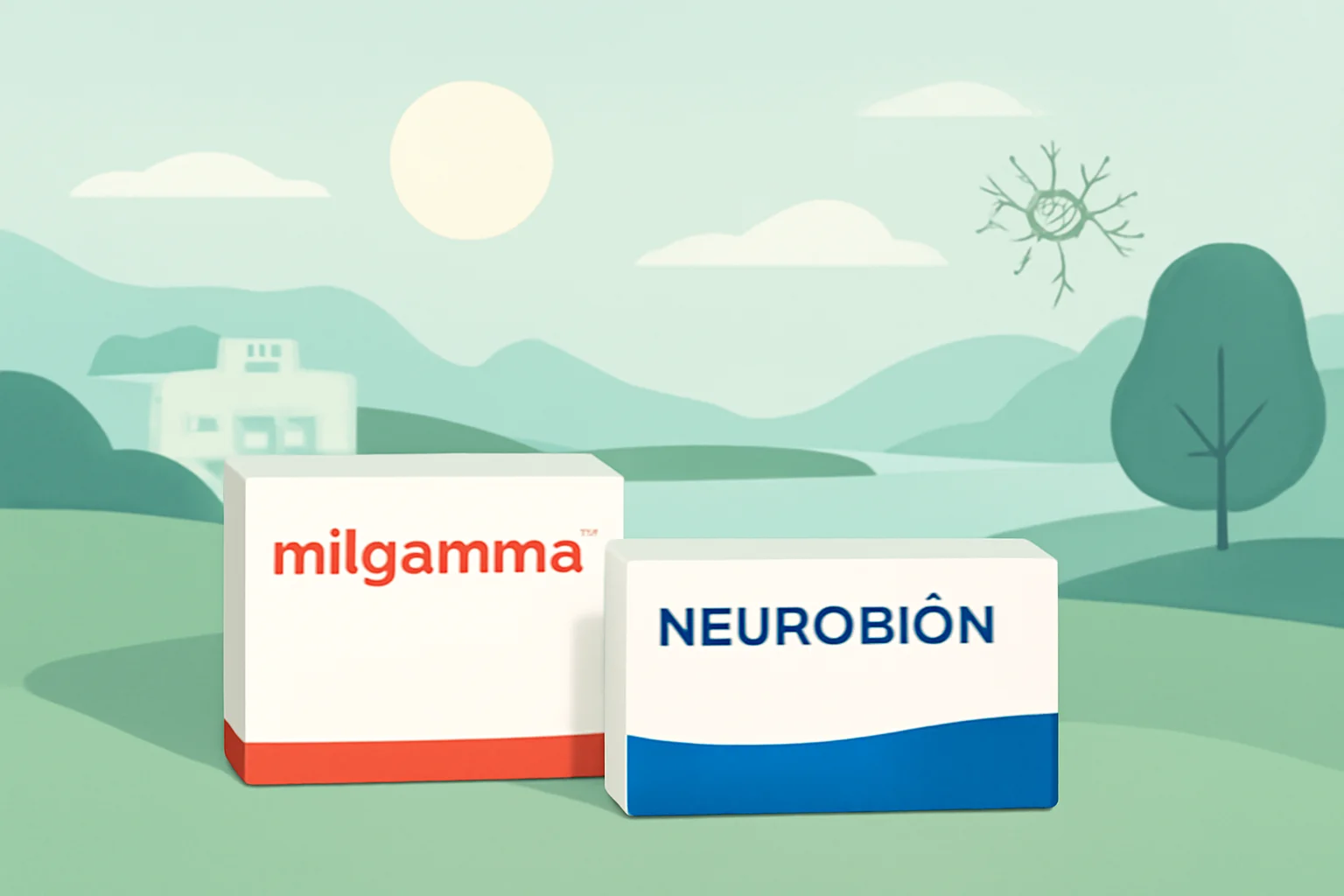
Milgamma or Neurobion: Which is the better choice for neurological complaints?
A role of vitamins and minerals in modern medicine is becoming increasingly important, especially when it comes to treating neurological and musculoskeletal issues. Milgamma and Neurobion are two popular products that support the body with vitamins and minerals. The effectiveness of these products can be examined from various perspectives, and many people seek information on which is the better choice. Vitamins, particularly B vitamins, are essential for the proper functioning of the nervous system, and their deficiency can lead to numerous health problems. This is where Milgamma and Neurobion come into play, targeting the replenishment of B vitamins with their different compositions and active ingredients.
Choosing Between Milgamma and Neurobion
The choice between Milgamma and Neurobion is not only about effectiveness but also about the method of use, side effects, and costs. People are becoming more health-conscious, so it is important to be well-informed about possible solutions. Below, we will examine the main characteristics, advantages, and disadvantages of the two products to help you make the best decision.
Milgamma: Composition and Mechanism of Action
Milgamma is a preparation that contains B vitamins, specifically B1, B6, and B12. These vitamins are essential for the functioning of the nervous system as well as for cellular metabolism. Milgamma not only contains vitamins but also lidocaine, which has pain-relieving effects. Therefore, Milgamma can be particularly useful for those suffering from muscle and nerve pain.
Vitamin B1 is involved in carbohydrate metabolism, while vitamin B6 plays an important role in the metabolism of proteins and fats. Vitamin B12 is crucial for the formation of red blood cells and for maintaining the health of the nervous system. Thus, Milgamma helps not only with pain relief but also in treating vitamin deficiency conditions.
The mechanism of action of the preparation is complex, as the B vitamins work together to improve the regeneration and protection of nerves. Regular use may contribute to the reduction of neurological symptoms such as numbness, pain, or muscle weakness. The effectiveness of Milgamma has been supported by clinical research in many cases, making the product popular among those struggling with neurological disorders.
However, it is important to note that one should consult a healthcare professional before using Milgamma, as certain side effects may occur, such as allergic reactions, redness, or itching. Additionally, since it contains lidocaine, it may not be an ideal choice for everyone. The effectiveness of Milgamma may vary depending on individual reactions, so it is advisable to seek professional guidance before use.
Neurobion: Composition and Application
Neurobion is also a B vitamin complex that contains B1, B6, and B12 vitamins, but it does not contain a pain reliever like Milgamma. Neurobion is primarily intended for the treatment of vitamin deficiency conditions and the alleviation of neurological symptoms. The purpose of the preparation is to support the functioning of the nervous system and help prevent the consequences of vitamin deficiency.
The B vitamins in Neurobion also play an important role in the health of the nervous system. Vitamin B1 promotes the functioning of nerves, while vitamin B6 contributes to the production of neurotransmitters such as serotonin and dopamine. Vitamin B12 plays a key role in the formation of the myelin sheath, which protects nerve cells and improves the transmission of nerve signals.
The use of Neurobion is particularly recommended for those suffering from B vitamin deficiency due to inadequate nutrition or for those whose bodies cannot properly absorb these vitamins. Taking the preparation may help reduce fatigue and exhaustion and improve overall well-being.
As with any medication, it is advisable to seek medical advice before using Neurobion. Although the preparation is well-tolerated, side effects such as stomach discomfort or allergic reactions may occur. Furthermore, Neurobion does not replace a balanced diet and should not be used as a substitute for a healthy lifestyle.
Milgamma and Neurobion: Which is the Better Choice?
Choosing between Milgamma and Neurobion is not straightforward, as both preparations have their own advantages and disadvantages. The primary difference lies in the active ingredients: while Milgamma also contains a pain reliever, Neurobion consists solely of vitamins. Therefore, the decision largely depends on the symptoms the patient is experiencing and the intended use of the preparation.
If pain relief is an important consideration, Milgamma may be the more suitable choice, as lidocaine helps reduce pain alongside the B vitamins. For those who are only looking for a solution to replenish vitamins, Neurobion may be sufficient and possibly available at a more favorable price.
It is also important to consider individual reactions. Since each person’s body reacts differently to medications, it is wise to seek medical advice before making a choice. Additionally, side effects may vary, so the patient should monitor their condition while taking the preparations.
Costs are also an important factor, as Milgamma is generally more expensive than Neurobion. Therefore, it is worth weighing which preparation offers a better value for the patient. To make the right choice, it is essential for the patient to gather information about the two products and consider their own health status and needs.
Attention: This article does not constitute medical advice. In case of health issues, always consult your doctor to receive the most appropriate advice and treatment.

